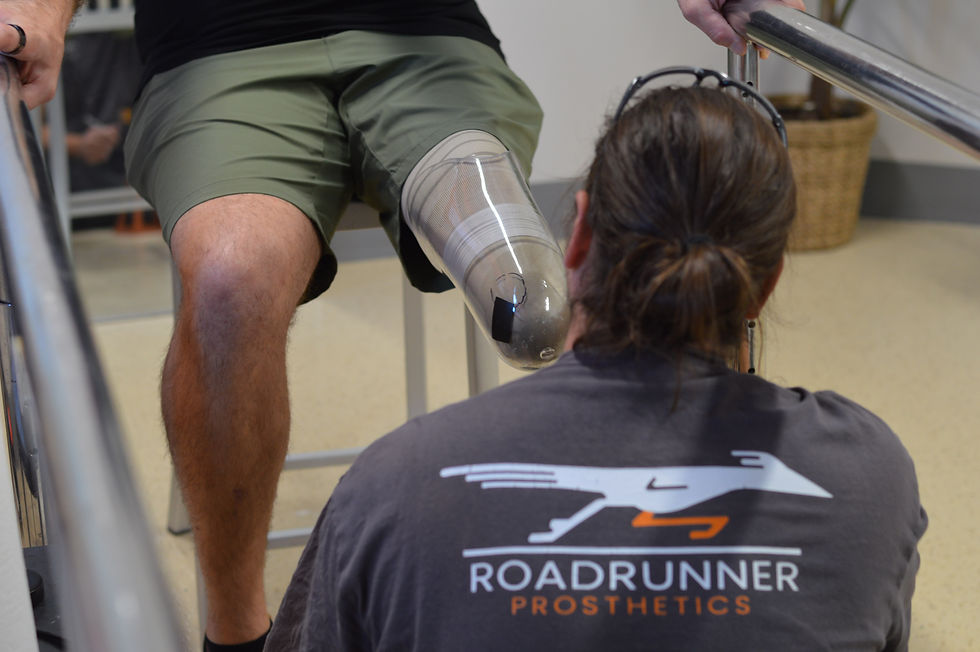Mental Health & Limb Loss: Coping Strategies & Support Resources
- Mac Burrell
- Jun 19, 2025
- 2 min read

Losing a limb is life-changing. And while most conversations focus on the physical challenges of limb loss, the emotional and mental journey is just as important. It's completely normal to experience a wide range of feelings during recovery: grief, frustration, anxiety, fear, and even hope. At Roadrunner Prosthetics, we believe that healing isn’t just about the body—it’s about the whole person. That includes your mental health.
Whether you’re new to limb loss or years into your journey, it’s never too late to prioritize your emotional well-being. Below, we’re sharing some realistic coping strategies and trusted resources to help you or a loved one navigate the ups and downs of life after amputation.
1. Give Yourself Time to Grieve
Grief isn’t just about losing a person. It can also be about losing a part of yourself or the life you used to know. Your feelings are valid, and there’s no set timeline for adjusting to limb loss. Give yourself permission to feel everything—the sadness, the anger, the confusion. These emotions are part of the healing process.
2. Talk to a Mental Health Professional
Therapists, counselors, and psychologists can be an essential part of your recovery team. They can help you process trauma, manage anxiety or depression, and build healthy coping strategies. Look for professionals who have experience working with people with physical disabilities or trauma.
3. Connect with Others Who Understand
Sometimes the most healing conversations are with people who’ve been there. Peer support groups— in-person or online—can offer a safe space to share your story, ask questions, and be reminded that you’re not alone. Organizations like the Amputee Coalition offer support groups, peer mentorship, and community events.
4. Move Your Body (In Any Way That Feels Good)
Staying physically active can improve your mood, reduce stress, and help you feel more in control of your body. Whether it’s walking with a prosthesis, stretching at home, or adaptive sports - movement matters. Listen to your body and celebrate small wins.
5. Limit Negative Inputs
Pay attention to the media, social media accounts, or even people who make you feel less than. You deserve spaces that encourage healing, empowerment, and self-compassion. Curate your environment to support your growth.
6. Know the Signs of Depression
Feeling down occasionally is normal, but persistent sadness, hopelessness, changes in sleep or appetite, and loss of interest in things you once enjoyed could be signs of depression. If you’re struggling, reach out for help. You're not weak for asking—you’re human.
Resources We Recommend:
Amputee Coalition: amputee-coalition.org – Peer support, education, and mental health guidance.
Crisis Text Line: Text HOME to 741741 – Free, 24/7 support from trained crisis counselors.
Psychology Today: psychologytoday.com – Find therapists near you who specialize in trauma, disability, or grief.
Roadrunner Prosthetics Team: We’re here to talk, connect you to resources, or just listen. You’re never alone on this journey. Contact us here.
Takeaway: Limb loss doesn’t just change your body—it changes your story. And that story deserves to be told, honored, and supported. Mental health is part of that. At Roadrunner, we see you. We support you. And we’re with you every step of the way.






Comments